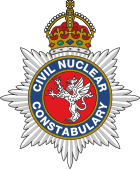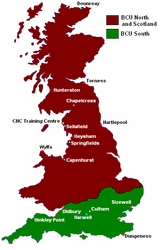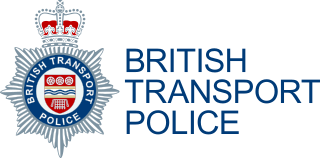
British Transport Police is a national special police force that polices the railway network of England, Wales and Scotland. The force polices more than 10,000 miles of track and more than 3,000 stations and depots.
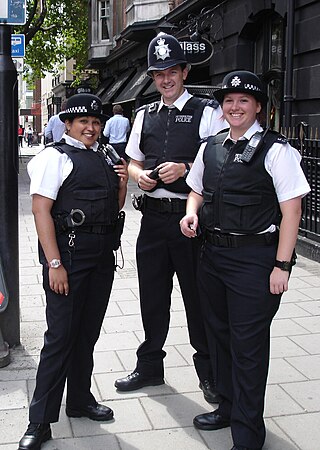
Law enforcement in the United Kingdom is organised separately in each of the legal systems of the United Kingdom: England and Wales, Scotland, and Northern Ireland. Most law enforcement duties are carried out by those who hold the office of police constable of a territorial police force.
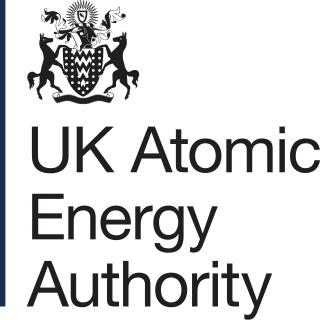
The United Kingdom Atomic Energy Authority is a UK government research organisation responsible for the development of fusion energy. It is an executive non-departmental public body of the Department for Energy Security and Net Zero (DESNZ).
Chief Constable is the rank used by the chief police officer of every territorial police force in the United Kingdom except for the City of London Police and the Metropolitan Police, as well as the chief officers of the three 'special' national police forces, the British Transport Police, Ministry of Defence Police, and Civil Nuclear Constabulary. The title is also held by the chief officers of the principal Crown Dependency police forces and the Sovereign Base Areas Police in Cyprus. The title was also held, ex officio, by the president of the Association of Chief Police Officers under the Police Reform Act 2002. It was also the title of the chief officer of the Royal Parks Constabulary until this agency was disbanded in 2004.

The United Kingdom Atomic Energy Authority Constabulary was the armed security police force of the United Kingdom Atomic Energy Authority. The force existed for 50 years, operating from 1955, until 1 April 2005.

An authorised firearms officer (AFO) is a British police officer who is authorised and trained to carry and use firearms. The designation is significant because most police officers in the United Kingdom do not routinely carry firearms. The only forces where officers are routinely armed are the Police Service of Northern Ireland, the Ministry of Defence Police, the Civil Nuclear Constabulary, Belfast Harbour Police and the Belfast International Airport Constabulary.
A firearms unit is an armed unit within each territorial police force in the United Kingdom. For the most part, the police forces of the United Kingdom are unarmed; however, all have firearms units to provide the police force with the capability to deal with terrorists and armed criminals. A police officer cannot apply to join the firearms unit without first finishing their two-year probationary period, with a further two years in a core policing role for some forces. Firearms unit is the most common name outside of the capital, while that of London's Metropolitan Police Service is called the Specialist Firearms Command, Trojan or SC&O19. Within the media it is sometimes compared to the SWAT units of the United States.
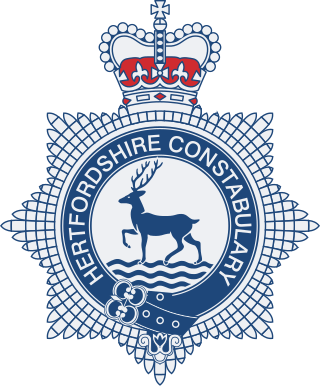
Hertfordshire Constabulary is the territorial police force responsible for policing the county of Hertfordshire in England. Its headquarters is in Welwyn Garden City. The current chief constable is Charlie Hall. As of March 2019, the force consists of over 1,900 police officers, 235 PCSOs, over 1500 police staff, as well as being supported by more than 410 special constables.
In the United Kingdom police firearm policy varies by constituent countries. In Northern Ireland, all police officers carry firearms whereas in the rest of the United Kingdom, firearms are carried only by specially-trained firearms officers. The arming of police in Great Britain is a much debated topic.
The Civil Nuclear Police Authority is the police authority that oversees the Civil Nuclear Constabulary. A police authority is a body corporate in the United Kingdom that defines strategic plans for a police force and provides accountability so that the police function "efficiently and effectively". The authority was created in 2004 by the Energy Act 2004. The authority is subject to freedom of information requests.
The Ministry of Defence Police (MDP) in the United Kingdom can trace its origins back to 1686, and has gone through a number of evolutions over the centuries to achieve its present-day form. Until late 1965, the Royal Navy, British Army and Royal Air Force were controlled by separate departments: the Board of Admiralty, the Army Board and the Air Ministry respectively, each had its own Cabinet Minister. In that year it was decided that the three services should be placed under the control of one Minister of State for Defence, and the present Ministry of Defence was formed.
MDP officers are attested as constables in one of the three jurisdictions of the United Kingdom: England & Wales, Scotland and Northern Ireland, but can exercise their powers in matters relating to the Ministry of Defence Estate throughout the United Kingdom, and additionally in the circumstances described below. MDP officers' jurisdiction relates to a subject rather than geographic area and is set out in section 2 of the Ministry of Defence Police Act 1987, which was amended by the Anti-terrorism, Crime and Security Act 2001. MDP officers are based throughout the UK and exercise their jurisdiction over matters connected with the Defence Estate; there is no requirement for them to be on Ministry of Defence land when doing so.
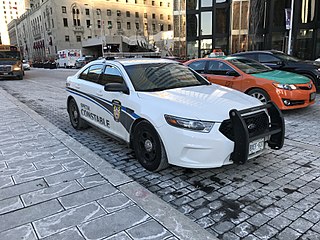
A special constable or special police constable can refer to an auxiliary or part-time law enforcement officer or a person who is granted certain (special) police powers.
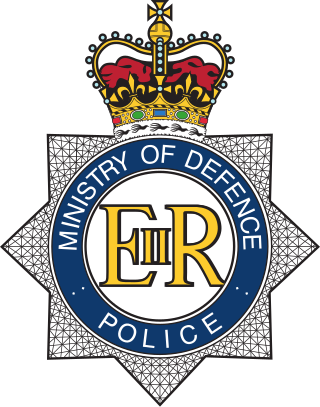
The Ministry of Defence Police (MDP) is a civilian special police force which is part of the United Kingdom's Ministry of Defence. The MDP's primary responsibilities are to provide armed security and counter terrorism services to designated high-risk areas, as well as uniformed policing and limited investigative services to Ministry of Defence property, personnel, and installations throughout the United Kingdom. The MDP are not military police. Service personnel often refer to the MDP by the nickname "MOD plod".
Airport policing in the United Kingdom has taken many forms since the rise of scheduled airline services in the post-war period. Policing at major civilian airports was the responsibility of specialist constabularies operated by three central government departments until 1974, when the rise in international terrorism saw armed police from territorial police forces deployed to major airports under the provisions of the Policing of Airports Act. As more minor airports grew in size, they too switched to armed police provided by local police forces. However, the funding agreements for the provision of such services varied wildly from airport to airport, leading to disagreements between airport operators and chief constables. A new regime, the Airport Security Planning Framework, came into force in January 2010, and brought airport operators, airlines and police forces together to develop joint security and policing plans for all passenger airports.
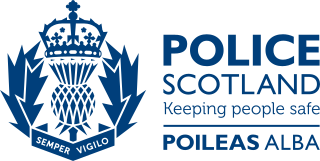
Police Scotland, officially the Police Service of Scotland, is the national police force of Scotland. It was formed in 2013, through the merging of eight regional police forces in Scotland, as well as the specialist services of the Scottish Police Services Authority, including the Scottish Crime and Drug Enforcement Agency. Although not formally absorbing it, the merger also resulted in the winding up of the Association of Chief Police Officers in Scotland.

Michael Trevor Griffiths is a retired British police officer who served as Chief Constable and Chief Executive of the Civil Nuclear Constabulary from 2013 until 2019; prior to which, he was an officer of the British Army who retired as a Brigadier.
